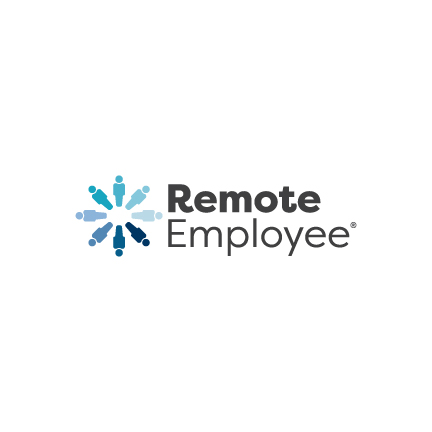10 ways to boost remote employee wellness

Top 10 tips for maintaining remote employee wellness
Remote work has become widely accepted as part of the modern working landscape. It’s also become increasingly crucial to prioritize the holistic well-being of remote employees.
Remote Employee CEO Ruffy Galang says, “Leading an offshore team takes courage and flexibility. Welcoming new changes and challenges with an open mind is the key to success.”
The traditional boundaries between work and personal life have blurred, highlighting the physical and mental health challenges inherent in remote work.
A 2023 survey by the American Psychological Association found that hybrid or remote workers were more likely to report satisfaction in how, when, and where they work (85% and 89%).
These rates were higher than those who work permanently onsite (77%).
With this in mind, we’re exploring the top actionable tips for maintaining remote employee wellness, focusing on strategies that encompass both physical and mental health.
These suggestions are meant to give you the tools you need to empower your remote workers and productively support their well-being.

Why prioritize remote employee wellness?
Prioritizing remote employee wellness is critical for the success of businesses that employ remote workers. Since remote employees do not have the same level of in-person support and interaction as office-based employees, there is a risk of isolation, disengagement, and burnout.
In order for remote employees to thrive, they need to have access to resources and strategies that go beyond traditional perks like health insurance and paid time off.
By prioritizing employee wellness, employers can help remote workers to feel empowered, supported, and engaged in their work. Productivity, job satisfaction, and retention rates all rise as a result.
Furthermore, when an organization fosters a culture of wellness, it demonstrates a commitment to the positive well-being of its employees. This approach can, in turn, attract and retain top talent.
Ultimately, prioritizing remote employee wellness is a smart investment in the success and longevity of any business with remote workers on its team.
10 tips for keeping remote employee wellness
In order to ensure the well-being and productivity of remote employees, here are some valuable tips for promoting a healthy work-life balance and maintaining optimal wellness:
1. Establish a healthy routine
Encouraging remote employees to establish a healthy daily routine can lay the foundation for improved well-being. Providing structure in their workdays by setting regular hours for work, breaks, and meals can help maintain productivity and mental clarity.
Employees should be encouraged to incorporate small rituals into their routine. You may suggest starting the day with a brief exercise session or taking a short walk during breaks to break up the day and prevent burnout.
2. Offer flexibility and autonomy
Granting remote employees the flexibility to manage their schedules and workload can empower them to find a work-life balance that suits their individual needs.
By allowing employees to have a say in how and when they work, employers can foster a sense of trust and autonomy that leads to increased job satisfaction and overall well-being.
3. Practice mindfulness and stress management
Providing remote employees with tools and resources for practicing mindfulness and managing stress can help them cope with the challenges of remote work.
Encourage employees to take short breaks for deep breathing exercises, meditation, or stretching. These promote relaxation and mental clarity, reducing feelings of overwhelm or anxiety.
4. Foster social connections
Facilitating opportunities for remote employees to connect with their colleagues and supervisors can combat feelings of isolation and enhance collaboration.
Gallup reported that 20% of working adults faced loneliness in their job. This was naturally higher in fully remote employees at 25%.
Employers can organize virtual team-building activities, regular check-ins, or informal social events to foster a sense of community and camaraderie among remote team members.

5. Promote healthy eating habits
Support your remote employees’ physical well-being by educating them on the importance of healthy eating habits and providing resources for nutritious meal planning.
Encourage employees to stock up on healthy snacks, stay hydrated throughout the day, and prioritize balanced meals. These can boost energy levels, focus, and overall health.
6. Set clear boundaries
Support remote employee wellness by letting them set clear boundaries between work and personal life. These are essential for preventing burnout and maintaining well-being.
Employers should emphasize the importance of unplugging from work outside of designated hours. Encourage remote employees to establish a designated workspace and communicate their availability to prevent work from bleeding into personal time.
7. Get adequate sleep
Highlight the value of prioritizing adequate sleep for remote employee wellness.
Educate them on the importance of maintaining a consistent sleep schedule, creating a restful sleep environment, and practicing good sleep hygiene habits.
8. Incorporate regular physical activity
Encouraging remote employees to integrate regular physical activity into their daily routines can have numerous benefits for their well-being.
Regardless of working location, physical inactivity is a scourge for employees.
A study published in JAMA Network Open found that people who primarily sit during work hours have a 16% higher risk of mortality from all causes and a 34% higher risk of cardiovascular disease.
By not being confined to a traditional office, remote employees have a better chance of preventing this.
Employers can recommend exercise breaks, virtual fitness classes, or outdoor activities to help employees stay active, reduce stress, and boost their mood and productivity.
9. Prioritize ergonomics
Promoting proper ergonomics for remote work setups can help prevent musculoskeletal issues and discomfort for remote employees.
Employers can guide them on setting up a comfortable and ergonomic workspace. Include tips on posture, monitor placement, and equipment adjustments to enhance comfort and reduce the risk of injuries.
10. Seek support and resources
Ensure that remote employees have access to support and resources for their wellness.
Employers can provide information on available resources such as employee assistance programs, mental health services, wellness initiatives, and other relevant support networks. These will help employees navigate any issues that may arise.

Prioritize remote work wellness with Remote Employee
If you’re looking for a partner to help you build and manage a healthy, motivated remote workforce, Remote Employee is here to support you.
Remote work is here to stay, and a partner like Remote Employee has years of experience in business outsourcing, offering a comprehensive platform for hiring qualified workers from all over the world.
With Remote Employee, you can capitalize on the advantages of a global workforce. Embrace diverse perspectives, access unique skill sets, and navigate time zones to ensure round-the-clock productivity.
Plus, Remote Employee’s tailored solutions span various industries, from e-commerce to healthcare, finance to tech startups, catering to your specific requirements.
Interested to begin outsourcing? Invest in Remote Employee and harness the power of a global workforce to drive your business forward.







 Independent
Independent




